January
David Cameron, the Prime Minister, said that only electing the Conservatives could ‘save Britain’s economic recovery’. Labour unveiled a poster saying: ‘The Tories want to cut spending on public services back to the levels of the 1930s,’ and Ed Miliband, the party leader, said he would ‘weaponise the NHS’. Two male ‘hedge witches’ were wed under the equal marriage law in a pagan ceremony in Edinburgh. Alexis Tsipras became prime minister of Greece, heading a Syriza coalition. In Paris, gunmen murdered 17 people, 11 at Charlie Hebdo, the magazine that had published cartoons of Mohammed. The price of Brent crude oil dipped below $50 a barrel, down from $107 a year earlier. A French court prevented parents naming their daughter Nutella.
February
Mr Cameron said people who were too fat to work should not be able to claim benefits. Sir Malcolm Rifkind and Jack Straw were suspended from their parties after being separately secretly filmed apparently offering their services for payment. The Italian coastguard rescued more than 2,000 migrants off the Libyan coast a week after 300 drowned. The Islamic State posted a video of the beheading of 21 Egyptian Coptic Christians captured in Libya. Michele Ferrero, who became a billionaire by inventing Nutella, died aged 89.
March
Mr Cameron told James Landale of the BBC, who was cutting up chicory in his kitchen, that he would not seek a third term as Prime Minister. Rolf Harris, aged 84, had his CBE ‘cancelled and annulled’ after being jailed for assaults on girls. An aeroplane operated by Germanwings crashed in the French Alps, killing all 150 aboard. Boris Nemtsov, a leading opposition politician, was shot dead in a street near the Kremlin. A conference of chemists in Denver, Colorado, discussed ways of recovering gold from human excrement.
April
The Populus Predictor computer model, analysing polling data, gave the Conservatives a 0.2 per cent chance of a majority in the coming month’s general election. The annual rate of inflation turned negative for the first time since 1960, with deflation of 0.1 per cent as measured by the Consumer Prices Index. Over Easter, burglars broke into safe deposit boxes in Hatton Garden, London, stealing £14 million of valuables. A trial for handling stolen goods was stopped on discovering that Cumbria police had mistakenly sold the bicycle in question. Hundreds more migrants to Europe were drowned between Libya and Italy. In Yemen, Shia Houthi rebels fought for Aden while Saudi aircraft bombed their positions. Amnesty International said that in three months, 3,124 civilians in Aleppo had been killed by government barrel bombs.
May
Ed Miliband, the Labour leader, cut his election pledges into an eight-foot slab of limestone, but did not stop the Conservatives, to their surprise, winning, with 331 seats. The Liberal Democrats were reduced to eight. Ukip, with 3,881,129 votes, won one seat. The Scottish National party won 56 of 59 Scottish seats. Six Fifa officials were arrested in Zurich. In Brazil 42,000 people were found to have been shot dead in 2012. An eight-year-old boy was found in a suitcase being wheeled from Morocco into the Spanish enclave of Ceuta. A man with a wartime artillery shell in his luggage was refused permission to join a Eurostar train at Gare du Nord.
June
The population of the United Kingdom had increased in a year by 491,100 to 64,596,800. At Sousse in Tunisia, 30 British people were among 38 shot dead by a 23-year-old acting for the Islamic State. The European Central Bank cut off funds from Greece, which had to close its banks. The island of Lesbos (population 86,000) received 15,000 unauthorised migrants in June. Sepp Blatter, aged 79, agreed to resign as president of Fifa only four days after being re-elected for his fifth term. A second was added to 30 June, to synchronise atomic clocks with the slowing rotation of the Earth.
July
A 30-mile queue of lorries on the M20, waiting to use the Channel tunnel, was cleared after a French strike, only to return when 150 migrants tried to storm the tunnel by night. Scottish police admitted that a crashed car reported to them on a Sunday had not been examined until the Wednesday, when one of two people in it was still alive, though she died three days later. The Greeks voted no in an obscurely worded referendum. Leaders of eurozone countries offered Greece a third bailout on harsher terms than those rejected by Greek voters. Hungary built a fence along the 109-mile border with Serbia. The spacecraft New Horizons passed Pluto after a voyage of nine years and sent back photographs. Ciudad Real airport, built in 2008 for €1 billion, was auctioned for €10,000.
August
In an attempt to prevent Jeremy Corbyn being elected as Labour leader, Gordon Brown, the former prime minister, made a 50-minute speech in a small room at the Royal Festival Hall. Kids Company, the charity founded by Camila Batmanghelidjh, closed. Dairy farmers complained about losing 14p on every litre of milk. Germany said it expected 800,000 asylum seekers by the end of the year, setting off a huge trek from Turkey. Near the Hungarian border in Austria, 71 decomposing bodies were found in a van bought from a Slovak chicken company. The Shanghai Composite share index fell 7.6 per cent in a day. In Syria, Islamic State started blowing up monuments in Palmyra.
September
Jeremy Corbyn received 59.5 per cent of 422,664 votes cast for the Labour leadership. David Cameron told Parliament he had authorised the killing by a drone of a British citizen in Syria. Lord Ashcroft wrote a disobliging book about David Cameron which said that, at a Piers Gaveston society event, he had ‘inserted a private part of his anatomy’ into the mouth of a dead pig. Public feeling was moved by photographs of the drowned body of three-year-old Alan Kurdi on a Turkish beach. Volkswagen admitted it had rigged software in millions of vehicles to get round exhaust-fume regulations. The Pope visited Cuba and the USA. Syriza won another election in Greece. Saudi Arabia said 769 people had died in a crush at Mina during the hajj, a number that rose above 2,000.
October
The government was defeated in the Lords on reduction of working tax credits. Left-wing protesters spat on queues outside the Conservative party conference. Xi Jinping, the ruler of China, came for a state visit. Theresa Villiers, the Northern Ireland Secretary, said that the IRA army council still existed. Russia bombed targets in Syria, in support of President Bashar al-Assad. In Greece, 8,000 people a day were landing in small vessels from Turkey.
November
In the autumn statement, George Osborne, the Chancellor of the Exchequer, dropped planned cuts in working tax credits. John McDonnell, the shadow chancellor, quoted Mao’s Little Red Book and threw a copy towards him. An American drone killed Mohammed Emwazi, the British killer for Islamic State nicknamed Jihadi John. An Islamic State bomb in a Russian airliner over northern Sinai killed all 224 on board. Islamic State terrorists killed 130 in Paris. The AK party, founded by President Recep Tayyip Erdogan, won Turkish elections. Turkey shot down a Russian warplane on the Syrian border. Amazon opened a shop in Seattle selling books.
December
The government clinched a vote in favour of bombing Islamic State positions in Syria by 397 to 223, with 66 Labour MPs voting with the government. Jeremy Corbyn opened the debate for Labour, against bombing, and Hilary Benn, the shadow foreign secretary, drew applause by closing in favour. Floods swept Cumbria. A husband and wife with Islamic State sympathies shot dead 14 in San Bernardino, California. Police clashed with migrants on the Macedonian border. The Norwegian paper Aftenposten published a classified advertisement announcing the death of Father Christmas. CSH
Got something to add? Join the discussion and comment below.
Get 10 issues for just $10
Subscribe to The Spectator Australia today for the next 10 magazine issues, plus full online access, for just $10.
You might disagree with half of it, but you’ll enjoy reading all of it. Try your first month for free, then just $2 a week for the remainder of your first year.

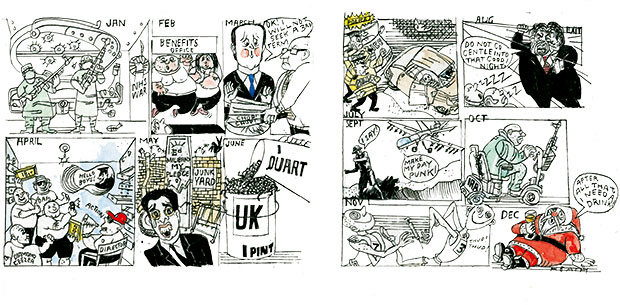
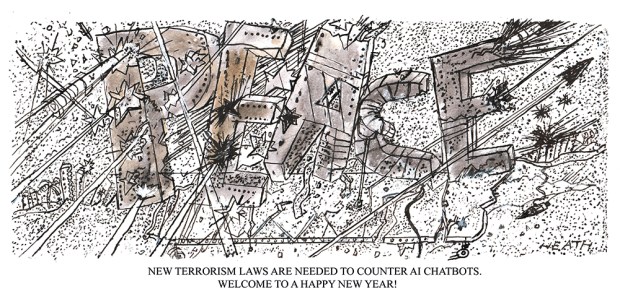
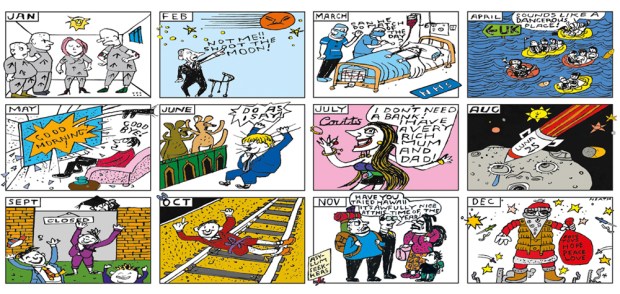
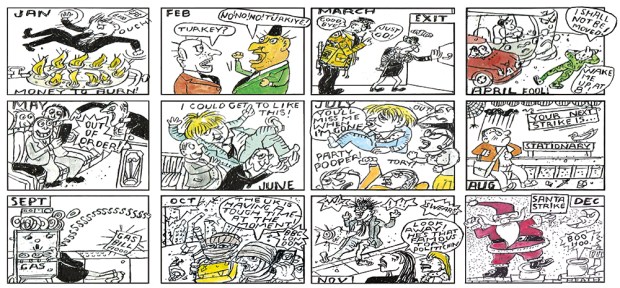
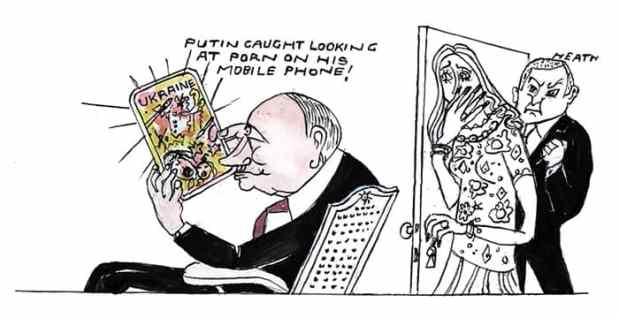
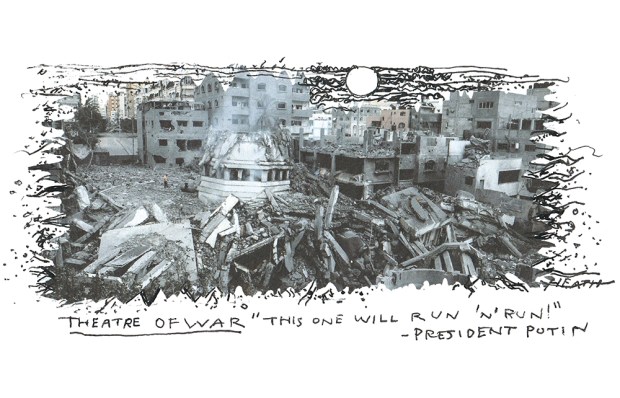
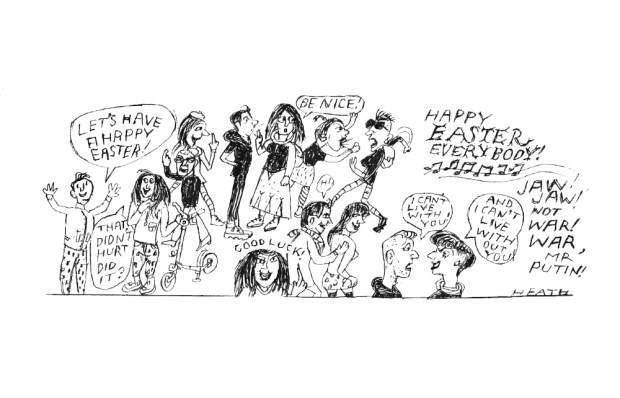






Comments
Don't miss out
Join the conversation with other Spectator Australia readers. Subscribe to leave a comment.
SUBSCRIBEAlready a subscriber? Log in